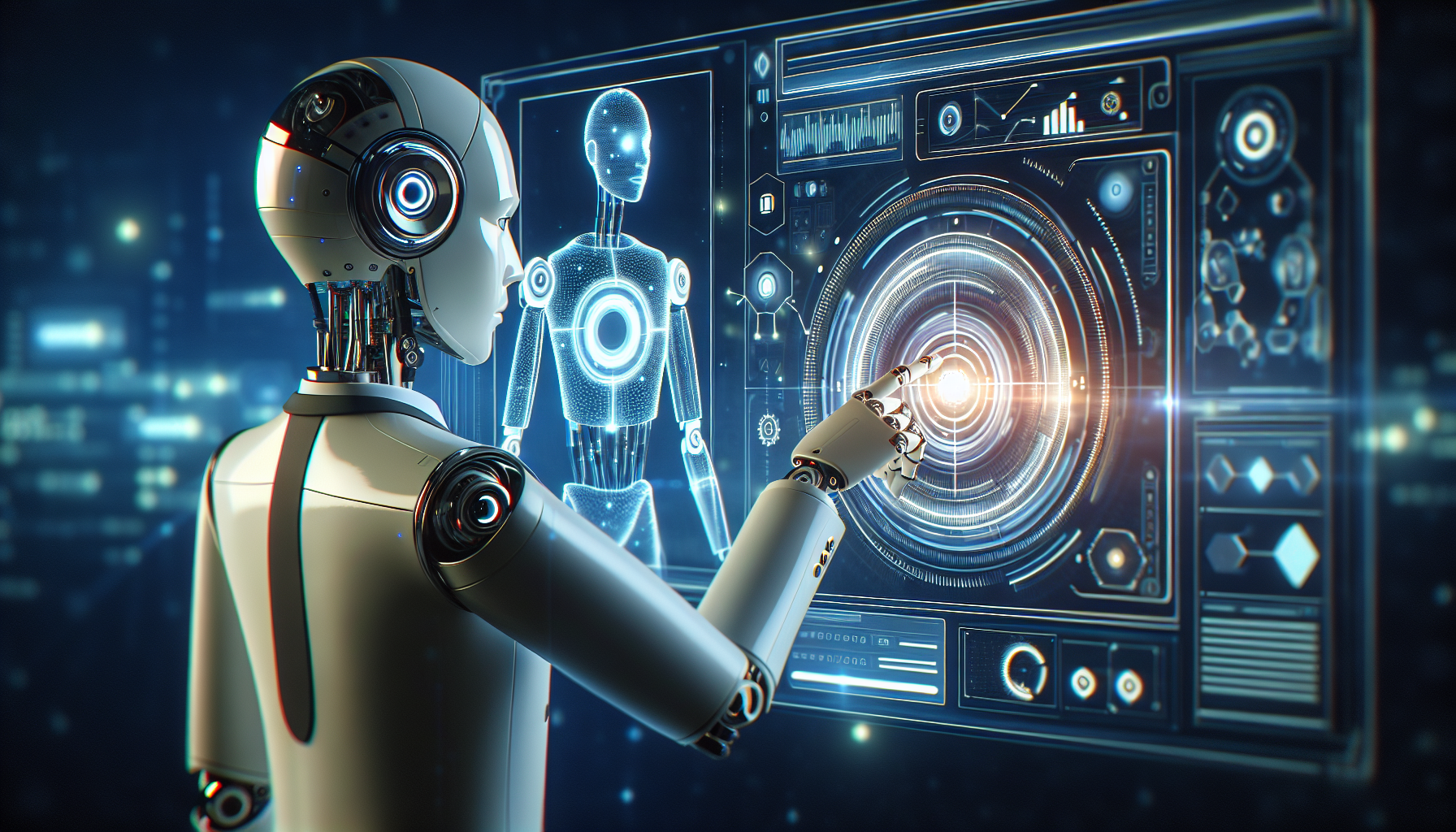- Published on
What are the latest AI developments at Google?
Artificial Intelligence (AI) is not only a buzzword in the tech world but a transformative technology altering various industries. At the forefront of these advancements is Google, one of the key players spearheading the development of AI. From enhancing search results to revolutionizing healthcare, Google's AI technology is making significant strides towards a smarter future. Let's delve into some of the latest AI developments at Google and their potential impact on our lives.
Google's AI Mission
Google's AI mission is to "organize the world's information and make it universally accessible and useful." To this end, the tech giant employs machine learning, deep learning, and other AI techniques to enhance its products and services.

Google's AI logo
Recent AI Developments at Google
Google's TensorFlow
Google's TensorFlow, an open-source machine learning framework, has seen significant advancements. TensorFlow 2.0, the latest version, provides a comprehensive ecosystem of tools, libraries, and community resources that lets researchers create groundbreaking ML-powered applications.
Google Duplex
Google Duplex, a stunning demonstration of AI capabilities, uses natural language processing to carry out real-world tasks over the phone. Tasks like booking a restaurant or scheduling a hair appointment can now be handled by this AI system, which can understand complex sentences, fast speech, and long remarks.
BERT Algorithm
Google's BERT (Bidirectional Encoder Representations from Transformers) algorithm significantly enhances the understanding of natural language. This AI model helps Google Search better understand the context of words in search queries and return more relevant results.

BERT Algorithm
Google's AI for Healthcare
Google Health, the company's healthcare division, leverages AI to improve disease detection and patient care. The AI model developed for diabetic retinopathy screening and prediction of cardiovascular risk factors is one such example.
Practical Applications and Use Cases
The practical applications of Google's AI are vast and extend across several industries. Google's AI has improved the accuracy of weather forecasts, optimized energy efficiency in data centers, and provided valuable insights for disease prevention and treatment.
Google Assistant
Powered by Google's AI technology, Google Assistant makes our lives easier by setting reminders, answering questions, and even controlling smart home devices.
Google Lens
Google Lens, another AI-powered product, uses image recognition to provide real-time information about objects around us.
Google AI in Healthcare
In healthcare, Google's AI has shown promising results in early disease detection. For instance, Google's AI model has been used to detect lung cancer from CT scans with a higher degree of accuracy than human radiologists.

Google AI in Healthcare
Future Outlook
With ongoing advancements, the future of AI at Google looks promising. Google's AI could play a significant role in addressing global challenges, from climate change to healthcare.
The tech giant's commitment to AI is evident in their AI for Social Good program, which aims to use AI to address societal challenges. Furthermore, Google's Responsible AI Practices guide the ethical development and use of AI in their products and services.
Conclusion and Key Takeaways
Google's AI advancements are transforming our interaction with technology and the world around us. From real-time assistance with Google Assistant to improved healthcare diagnostics, the practical applications of Google's AI are vast.
Key takeaways:
- Google's mission with AI is to make information universally accessible and useful.
- Recent developments include TensorFlow 2.0, Google Duplex, the BERT Algorithm, and AI applications in healthcare.
- The practical applications of Google's AI extend across several industries, including personal assistance, image recognition, and healthcare.
- Google's future AI developments aim to address global challenges and ensure responsible AI use.
Disclaimer: This article is intended for educational purposes only and does not constitute financial advice. Always do your own research and consider your financial circumstances before making any investment decisions.
